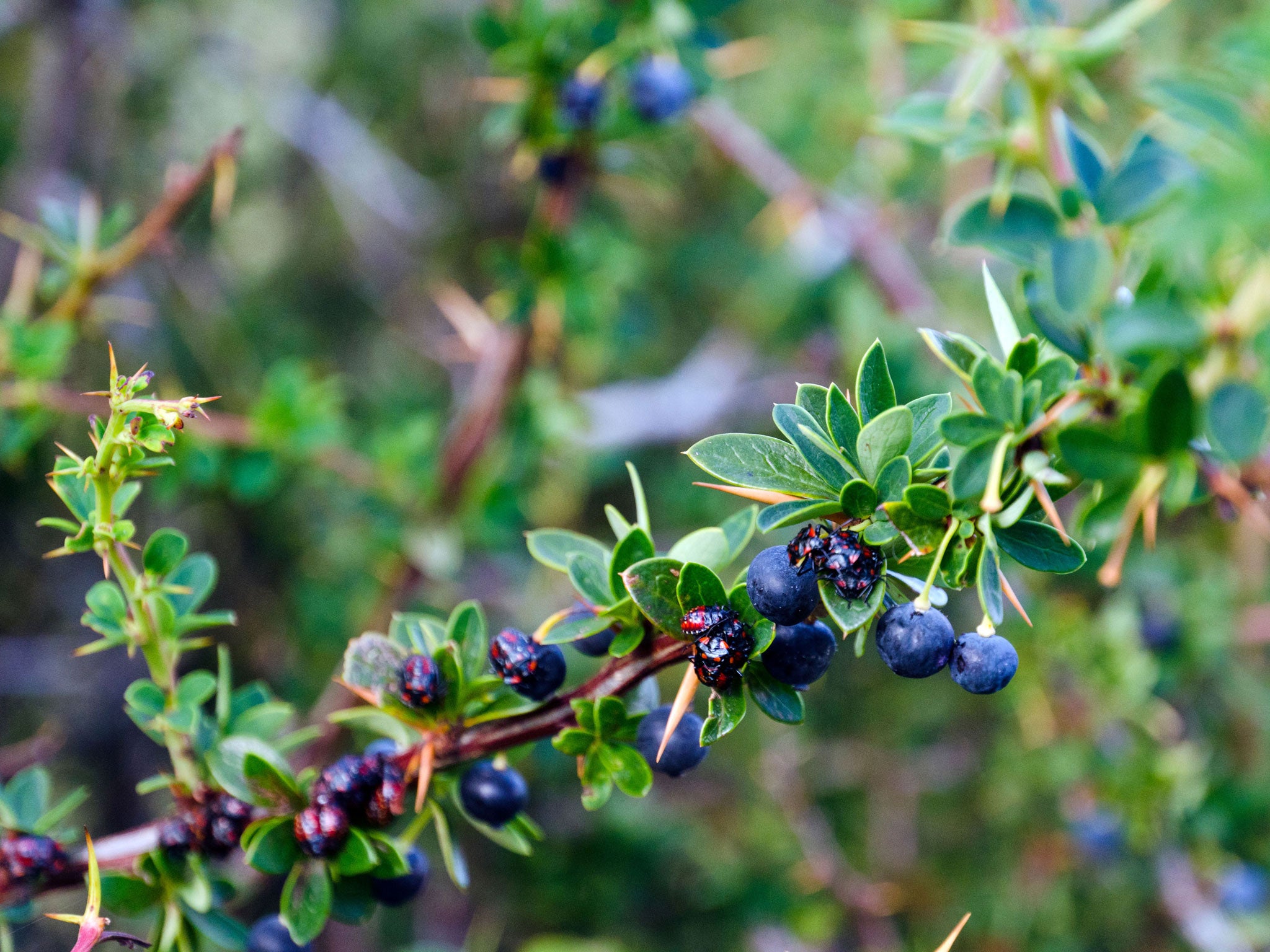Calafate invasion: Falklands natives under threat from an Argentinian force of nature
Invasive – and tenacious – South American shrub affecting plants and damaging sheep

Your support helps us to tell the story
From reproductive rights to climate change to Big Tech, The Independent is on the ground when the story is developing. Whether it's investigating the financials of Elon Musk's pro-Trump PAC or producing our latest documentary, 'The A Word', which shines a light on the American women fighting for reproductive rights, we know how important it is to parse out the facts from the messaging.
At such a critical moment in US history, we need reporters on the ground. Your donation allows us to keep sending journalists to speak to both sides of the story.
The Independent is trusted by Americans across the entire political spectrum. And unlike many other quality news outlets, we choose not to lock Americans out of our reporting and analysis with paywalls. We believe quality journalism should be available to everyone, paid for by those who can afford it.
Your support makes all the difference.Once more, the Falkland Islands are the subject of an aggressive invasion from South America. This time, the prickly foe is armed with short spikes and goes by the name of Calafate.
The invader, a shrub native to Argentina and Chile, arrived on the islands several decades ago when a small number of plants were brought in to provide wind shelter in a garden. It has now spread to cover about 1,700 acres at Port Sussex on East Falkland.
As well as forcing out native plant species, its thorns catch in the fleece of grazing sheep, damaging the wool and threatening the islands’ £3.2m agriculture sector.
The plant, also known as Magellan Barberry, is one example of several invasive species which have arrived on the South Atlantic archipelago in recent years, ranging from thistles to earwigs, presenting conservationists on the islands with a thorny problem of how to deal with them.
The issue is part of a wider project to ensure that the wildlife of the Falklands, including its famed penguins and albatross, is protected as the islands develop economically.
Calafate, which is cultivated in South America for its fruit and to make a red dye, is spreading so fast that islanders are facing mounting costs to secure its eradication. Attempts to kill it with herbicides have failed, meaning an expensive programme of biological control and digging the plants up is the only way forward.
Dr James Fenton, the chief executive of Falklands Conservation, said: “The problem has been identified but we are still a small community with limited resources, so like everywhere decisions have to be taken on what to prioritise. It will cost hundreds of thousand of pounds to control Calafate. The Falklands has a bio-diversity of international importance. We have the 70 per cent of the world’s Black Browed Albatross population and the second largest population of Rockhopper penguins.
“But while we have a landmass half the size of Wales, we have the population of a small English village, which generates a lot of responsibilities for a small population. We have to work hard to protect this bio-diversity.”
Earwigs, another unwelcome import, have begun to spread significantly throughout the capital, Stanley, and are proving troublesome for horticulture on the islands, where growing fruit and vegetables is already difficult. Gorse, another import, is creeping up mountainsides while sea trout, introduced to provide a food source and sport for islanders and tourists, is killing off native fish species.
The South Atlantic Environmental Research Institute, a new Falkland Islands Government and British-funded scientific body set up a year ago to boost the islands’ “knowledge economy”, is due to begin survey work to track the spread of invasive plants.
Join our commenting forum
Join thought-provoking conversations, follow other Independent readers and see their replies
Comments